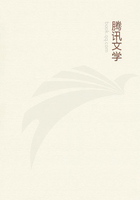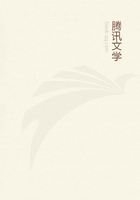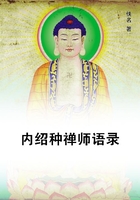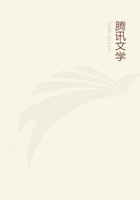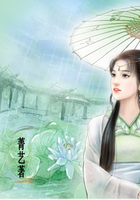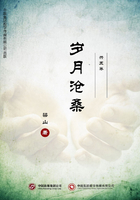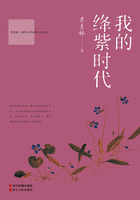So, after that we had seated ourselves on a bench beside a white oratory, and Lieutenant Khorvat had taken off his hat, and with a blue handkerchief wiped his forehead and the thick silvery hair which bristled from the knobs of his scalp, he continued:
"Mark you well the word kladbistche." [The word, though customarily used for cemetery, means, primarily, a treasure-house.] Here he nudged me with his elbow--continuing, thereafter, more softly: "In a kladbisiche one might reasonably look for kladi, for treasures of intellect and enlightenment.
Yet what do we find? Only that which is offensive and insulting.
All of us does it insult, for thereby is an insult paid to all who, in life, are bearing still their 'cross and burden.' You too will, one day, be insulted by the system, even as shall I.
Do you understand? I repeat, 'their cross and burden'--the sense of the words being that, life being hard and difficult, we ought to honour none but those who STILL are bearing their trials, or bearing trials for you and me. Now, THESE folk here have ceased to possess consciousness."
Each time that the old man waved his hat in his excitement, its small shadow, bird-like, flew along the narrow path, and over the cross, and, finally, disappeared in the direction of the town.
Next, distending his ruddy cheeks, twitching his moustache, and regarding me covertly out of boylike eyes, the Lieutenant resumed:
"Probably you are thinking, 'The man with whom I have to deal is old and half-witted.' But no, young fellow; that is not so, for long before YOUR time had I taken the measure of life.
Regard these memorials. ARE they memorials? For what do they commemorate as concerns you and myself? They commemorate, in that respect, nothing. No, they are not memorials; they are merely passports or testimonials conferred upon itself by human stupidity. Under a given cross there may lie a Maria, and under another one a Daria, or an Alexei, or an Evsei, or someone else--all 'servants of God,' but not otherwise particularised. An outrage this, sir! For in this place folk who have lived their difficult portion of life on earth are seen robbed of that record of their existences, which ought to have been preserved for your and my instruction. Yes, A DESCRIPTION OF THE LIFE
LIVED BY A MAN is what matters. A tomb might then become even more interesting than a novel. Do you follow me?"
"Not altogether," I rejoined.
He heaved a very audible sigh.
"It should be easy enough," was his remark. "To begin with, I am NOT a 'servant of God.' Rather, I am a man intelligently, of set purpose, keeping God's holy commandments so far as lies within my power. And no one, not even God, has any right to demand of me more than I can give. That is so, is it not?"
I nodded.
"There!" the Lieutenant cried briskly as, cocking his hat, he assumed a still more truculent air. Then, spreading out his hands, he growled in his flexible bass:
"What is this cemetery? It is merely a place of show."
At this moment, for some reason or another, there occurred to me an incident which involved the figure of Iraklei Virubov, the figure which had carpet slippers on its ponderous feet, thick lips, a greedy mouth, deceitful eyes, and a frame so huge and cavernous that the dapper little Lieutenant could have stepped into it complete.
The day had been a Sunday, and the hour eventide. On the burnt plot of ground some broken glass had been emitting a reddish gleam, shoots of ergot had been diffusing their gloss, children shouting at play, dogs trotting backwards and forwards, and all things, seemingly, faring well, sunken in the stillness of the portion of the town adjoining the rolling, vacant steppe, with, above them, only the sky's level, dull-blue canopy, and around them, only the cemetery, like an island amidst a sea.
With Virubov, I had been sitting on a bench near the wicket-gate of his hut, as intermittently he had screwed his lecherous eyes in the direction of the stout, ox-eyed lacemaker, Madame Ezhov, who, after disposing of her form on a bank hard-by, had fallen to picking lice out of the curls of her eight-year-old Petka Koshkodav. Presently, as swiftly she had rummaged the boy's hair with fingers grown used to such rapid movement, she had said to her husband (a dealer in second-hand articles), who had been seated within doors, and therefore rendered invisible--she had said with oily derision:
"Oh, yes, you bald-headed old devil, you! Of course you got your price. Ye-es. Then, fool, you ought to have had a slipper smacked across that Kalmuck snout of yours. Talk of my price, indeed!"
Upon this Virubov had remarked with a sigh, and in sluggish, sententious tones:
"To grant the serfs emancipation was a sheer mistake. I am a humble enough servant of my country, yet I can see the truth of what I have stated, since it follows as a matter of course. What ought to have been done is that all the estates of the landowners should have been conveyed to the Tsar. Beyond a doubt that is so. Then both the peasantry and the townsfolk, the whole people, in short, would have had but a single landlord. For never can the people live properly so long as it is ignorant of the point where it stands; and since it loves authority, it loves to have over it an autocratic force, for its control.
Always can it be seen seeking such a force."
Then, bending forward, and infusing into each softly uttered word a perfect lusciousness of falsity, Virubov had added to his neighbour:
"Take, for example, the working-woman who stands free of every tie."
"How do I stand free of anything?" the neighbour had retorted, in complete readiness for a quarrel.
"Oh, I am not speaking in your despite, Pavlushka, but to your credit," hastily Virubov had protested.
"Then keep your blandishments for that heifer, your 'niece,'" had been Madame Ezhov's response.
Upon this Virubov had risen heavily, and remarked as he moved away towards the courtyard:
"All folk need to be supervised by an autocratic eye."

